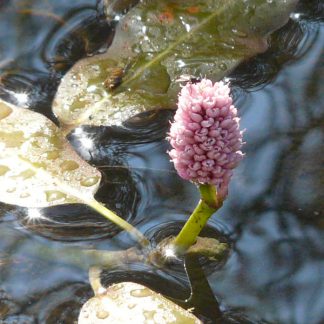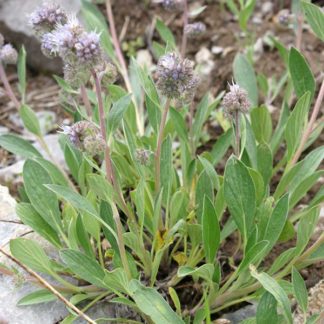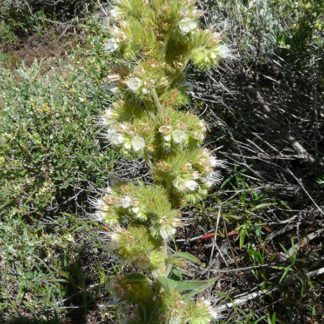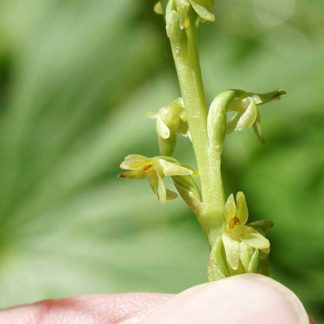July
Showing 133–144 of 200 results
-

Penstemon palmeri / Palmer’s penstemon
- very tall, exposed
- pink flowers with rose/grape scent
- flowers clumped on one side of stem in groups of 4-5
- red "guidelines" (bloody fangs) on lower petals
- stem leaves opposite, clasping, like little boats
-

Penstemon rydbergii / Rydberg’s penstemon
- small, blue/purple tubular flowers in leafy whorls
- flowers lack glands or hairs
- basal rosette of bright green, spoon-shaped leaves without glands or hairs
- stem leaves are lanceolate, around flower clusters
- wetter areas, but also along Victor/Driggs bike path
-

Penstemon whippleanus / dusky beardtongue
- large-ish purple or creamy-white tubular flowers
- from the side, flowers look like a gaping mouth; 2 lobes above, 3 below
- flowers typically hang down in small clusters at the top of their stems
- opposite, sessile leaves on flowering stems
- subalpine on rocky areas, as at Darby wind cave
-

Persicaria amphibia / water smartweed
- shocking pink flower clusters
- oval, leathery leaves
- either submerged or on stream or pond banks
-

Phacelia hastata / silverleaf scorpionweed
- flowers - dull white-ish/purple-ish, numerous in short, compact, coiled clusters
- stamens extend well past petals
- leaves - basal with prominent veins; usually covered with silvery hairs; usually entire
- multiple flowering stems on a single plant
- in a variety of habitats
-

Phacelia heterophylla / varied leaf scorpionweed
- spirally arranged, teeny white flowers with very long stamens
- flowers turn brown soon after opening
- all parts of the plant are hairy
- not all that common, but widespread
-

Phacelia sericea / silky phacelia
- deep purple flowers with really long stamens and orange anthers
- many flowers arranged in a tight coil up to 2 feet long
- silky, divided (fern-like) leaves
- exposed, higher altitude, rocky places; often with sagebrush
-

Phalaris arundinacea / reed canarygrass
- large, coarse, erect grass
- long, flat blades with pointy tips... from base
- distinct ligule—membranous and long
- large but compact inflorescences (panicles)
- often in dense monocultures, e.g. on river banks
-

Phlox longifolia / longleaf phlox
- white or pink to almost rose flowers
- blooms in spring, sometimes through to August
- common on disturbed and undisturbed sites
-

Pinus albicaulis / whitebark pine
- high altitude - subalpine to alpine; cold, windy sites
- five needles in tight fasicles
- brown to purple cones at top of tree; cones don't open
- scaly grayish bark
-

Plantanthera unalascensis / slender-spire orchid
- teeny, green flowers, well-separated, not spiraled
- a "tall, thin, green nothing"
- basal leaves prostrate, but not appressed to the ground
- leaves often wither before pollination occurs
- found in many different habitats
-

Platanthera dilatata / white bog orchid
- dense cluster of bright white, clove or cinnamon scented flowers
- 2 wing-like sepals, a hood, and a lower lip with a spur
- 3-6 principle leaves... alternate, lance-shaped
- in boggy wet areas
Showing 133–144 of 200 results